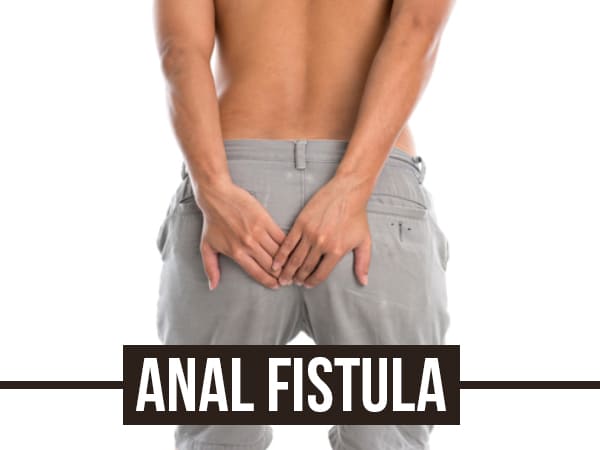Just In
- 6 hrs ago

- 7 hrs ago

- 10 hrs ago

- 10 hrs ago

Don't Miss
- Finance
 IndusInd Bank Q4 Results: PAT Soars 15% To Rs 2,349 Cr, NII Climbs 15%; 165% Dividend Declared
IndusInd Bank Q4 Results: PAT Soars 15% To Rs 2,349 Cr, NII Climbs 15%; 165% Dividend Declared - Movies
 Dance Deewane 4: Madhuri Dixit, Suniel Shetty, Karisma Kapoor Dance On Chak Dhoom Dhoom With Chikoo, Bunty- PI
Dance Deewane 4: Madhuri Dixit, Suniel Shetty, Karisma Kapoor Dance On Chak Dhoom Dhoom With Chikoo, Bunty- PI - News
 Who Is Lisa Pisano, New Jersey Woman Gets Pig Kidney Transplant And Heart Pump?
Who Is Lisa Pisano, New Jersey Woman Gets Pig Kidney Transplant And Heart Pump? - Sports
 Pakistan vs New Zealand 4th T20 Live Score, Latest Updates From Lahore: Tom Blundell, Tim Robinson Open NZ Innings
Pakistan vs New Zealand 4th T20 Live Score, Latest Updates From Lahore: Tom Blundell, Tim Robinson Open NZ Innings - Automobiles
 Royal Enfield Unveils Revolutionary Rentals & Tours Service: Check Out All Details Here
Royal Enfield Unveils Revolutionary Rentals & Tours Service: Check Out All Details Here - Technology
 Elon Musk’s X Is Launching a TV App Similar to YouTube for Watching Videos
Elon Musk’s X Is Launching a TV App Similar to YouTube for Watching Videos - Education
 AICTE introduces career portal for 3 million students, offering fully-sponsored trip to Silicon Valley
AICTE introduces career portal for 3 million students, offering fully-sponsored trip to Silicon Valley - Travel
 Escape to Kalimpong, Gangtok, and Darjeeling with IRCTC's Tour Package; Check Itinerary
Escape to Kalimpong, Gangtok, and Darjeeling with IRCTC's Tour Package; Check Itinerary
Anal Fistula: Causes, Risk Factors, Symptoms, Diagnosis, Treatments And Prevention
An anal fistula is a name given to a narrow cavity or tunnel caused near the anal opening. Around 50 per cent of anal fistula is the result of a previous or current anal abscess, a pus-filled infection in the perianal skin. An anal abscess is formed as a result of infection of a small part of the anal gland. [1]

When the pus from abscesses is drained out (on its own or by incision), a fistula or tunnel is formed under the skin connecting the abscess and the infected glands. Fistula is the result of an untreated anal abscess, incomplete drainage from the abscess and unhealed abscess. Take a look at the details.
Skin
Abscess:
Causes,
Symptoms,
Diagnosis,
Prevention
And
Treatment
Causes And Risk Factors Of Anal Fistula
The anus has several small glands that make mucus. Sometimes, these glands get clogged and infected, leading to skin abscess. An untreated, undrained or unhealed abscess then form a tunnel from the infected area to the skin around the anus, leading to an anal fistula. [2] Other secondary conditions that may increase the risk of anal fistula are:
- Sexually transmitted disease
- Crohn's disease [3]
- Inflammatory bowel disease
- Anorectal cancer
- Diverticulitis
- Tumour
- Tuberculosis
- HIV [4]
- Trauma
Are There Home Remedies For Blood In Stool?
Symptoms Of Anal Fistula
- Skin discomfort or irritation around the anus
- Pain during sitting, coughing or pooping
- Fever
- Recurring anal abscess
- Smelly discharge from the anal opening [5]
- Pain during bowel movements
- Blood in the stool (rectal bleeding)
Diverticulitis: Symptoms, Causes, Diagnosis And Treatment
Complications Of Anal Fistula
An untreated anal fistula can result in severe bacterial infections and sepsis which can lead to organ failure, tissue damage and even death. Moreover, an anal fistula may decrease the quality of life due to pain, irritation, discomfort and other conditions. [6]


Diagnosis Of Anal Fistula
- Physical examination: Here, a medical expert physically examines the area around the anus, the direction of the fistula and how deep it is.
- Anoscopy: Mainly to determine an internal fistula.
- Imaging Tests: Such as MRI or ultrasound to determine the direction and severity of the fistula.
- Colonoscopy: To find out abnormalities in the colon. This procedure helps determine whether the fistula is the result of conditions such as Crohn's disease, colorectal polyps or colorectal cancer. [7]
Pneumothorax (Collapsed Lung): Types, Causes, Symptoms, Risk Factors And Treatments
Treatment Of Anal Fistula
- Surgery (fistulotomy): To open and drain the fistula properly and allow it to heal. Medications are given after the surgery to ease pain and discomfort. [8]
- Seton procedure: Here, a surgical thread is inserted in the fistula for several weeks to allow the wound to drain properly and heal.
- Fistula plug: A special plug is inserted into the tunnel (fistula) and stitched. The plug prevents infection and helps the growth of normal tissues.
Orchitis (Inflammation Of The Testicles): Causes, Symptoms, Risk Factors And Treatments
How To Prevent Anal Fistula
- Include high fibre foods in your diet
- Drink plenty of water
- Keep the anal area clean
- Include ways in your daily life to avoid constipation
- Exercise regularly
- Go for a routine checkup to keep a note of your bowel-related diseases
10 FAQs About Waldenstrom Macroglobulinemia (Cancer Of The White Blood Cells)
Common FAQs
1. What does an anal fistula look like?
An anal fistula looks like a narrow tunnel from the internal anal glands to the outside of the skin around the anus. It is particularly like a hole near the anus.
2. How serious is a fistula?
Fistula can result in severe bacterial infections accompanied by sepsis. Sepsis is a condition which may lead to organ damage, low blood pressure and even death.
3. Can a fistula heal on its own?
No, anal fistula does not heal on its own. Therefore, it is advised to consult a medical expert soon to prevent the risk of sepsis or infections.


 Click it and Unblock the Notifications
Click it and Unblock the Notifications






